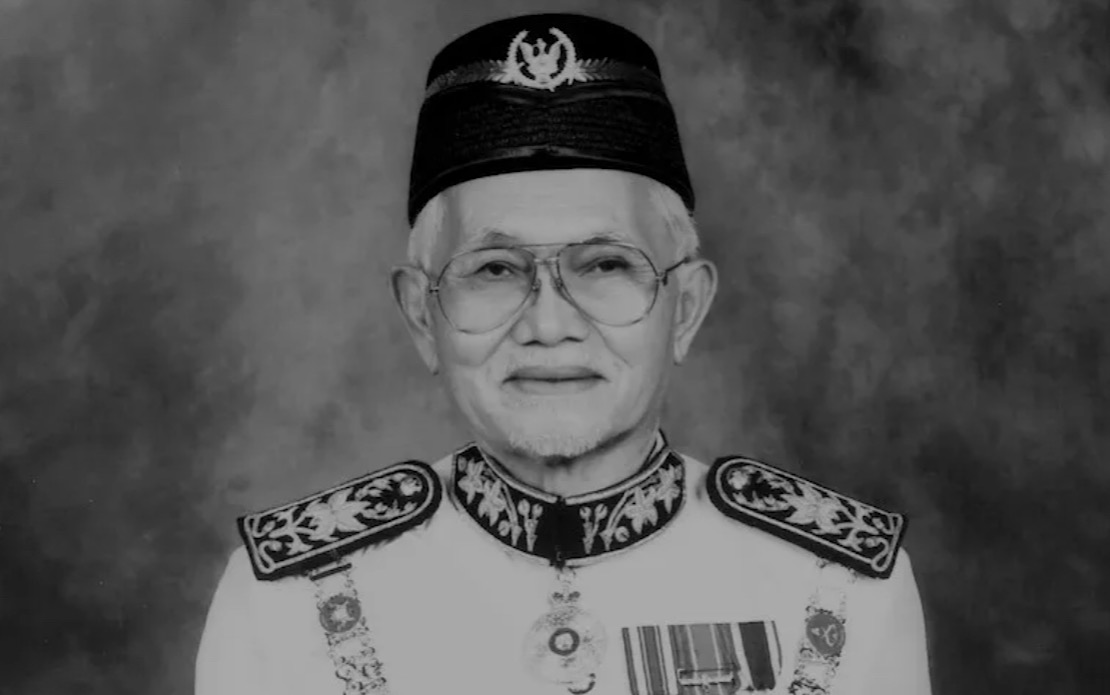KUALA LUMPUR – The diminutive and flamboyant Tun Abdul Taib Mahmud has left an indelible mark on Sarawak and the country, seeing that he was its chief minister for 33 years and later, the governor for nearly a decade.
However, his long shadow in politics was not without controversies, drama and heavy criticism, especially questions surrounding the massive wealth garnered by him and his family members.
Scoop takes a trip down memory lane to recap some of his better-known controversies.
Logging and deforestation in Sarawak
In 2000, Swiss environmentalist Bruno Manser accused then-Sarawak chief minister Taib of being “personally responsible” for the destruction of Sarawak’s rainforests within a span of a generation.
In 2014, another Swiss activist, Lukas Straumann, wrote about the Sarawak leader in his book titled Money Logging: On the Trail of the Asian Timber Mafia, claiming that “a corrupt autocrat liquidated the (Sarawakian) forest to keep himself at the helm of the state”.
While promoting his book, Straumann alleged that Taib and his family’s top 14 local companies – of 333 other firms and 418 global entities – secured a profit of about RM3.95 billion, according to research by his Swiss non-governmental organisation and the Companies Commission of Malaysia.

In a book titled Domination and Contestation: Muslim Bumiputera Politics in Sarawak, author Faisal S. Hazis alleged that Taib handed out timber concessions to his family members and cronies to strengthen his position as the “most powerful strongman-politician”.
Faisal also said Cahya Mata Sarawak Bhd (CMSB), a large manufacturing company mostly held by Taib’s family, secured monopolies in cement and steel production, agency services for log export shipments, stock brokerage, and Bumiputera banking in the 1990s.
As of 2017, Taib’s youngest daughter, Deputy Economy Minister Datuk Hanifah Hajar Taib, was a shareholder of CMSB, which largely contributed to her wealth, estimated at RM309 million at the time, which included luxury properties overseas.
On April 30, 2013, Sarawak Report accused Taib of his web of bribery activities, which are linked to the Sarawakian timber sector.
Regent Star, a company owned by a secretary to Taib’s brother, Tan Sri Onn Mahmud, was said to have accepted large sums of payment from firms wishing to export timber from Sarawak.
Taib ostensibly granted Onn control over the issuance of timber export licences in Sarawak.
Taib had a plaza named after him at the University of Adelaide, where he is an alumnus.
However, it was later renamed after environmental activist groups pressured the university to remove it, alleging his immense profit from illegal logging in Sarawak.
Confidential 2006 cables from US State Dept
According to cables dated October 13, 2006 – which were released by WikiLeaks on August 30, 2011 – the United States’ State Department concluded that the Sarawak government was “highly corrupt” under its chief minister, Taib.
In the document, DAP figures Chong Chieng Jen (Stampin MP) and Violet Yong (Pending assemblywoman) claimed Taib ensured that the contract for a RM300 million construction project to build a 27-storey state assembly building was awarded to CMSB.
The duo alleged that CMSB then used RM220 million of the funds to hire a subcontracting firm to handle the construction, while Taib’s family pocketed the remaining funds.

Meanwhile, then Human Rights Commission of Malaysia commissioner Mohammad Hirman Ritom Abdullah said indigenous leaders in the state government had little freedom to act without Taib’s consent.
He alleged that Taib appointed “compliant local leaders” from various tribes to “financially rewarding” government positions as a measure to eliminate any potential opposition against the then-chief minister.
From here, the cable also accused Taib and his relatives of extracting “a percentage” from most major commercial contracts awarded in the state, which included logging activities.
Raghad, Taib’s Syrian-born second wife
Taib’s second wife, Toh Puan Raghad Kurdi Taib, 44, has been targeted in a civil suit filed by her stepchildren, who are seeking a court injunction to stop share transfers from CMSB to her.
Datuk Seri Sulaiman Abdul Rahman Taib and Datuk Seri Abu Bekir Taib challenged that their father’s signature on a document relating to the transfers, TPR-6, was inauthentic.
Raghad, a Syrian-born, was criticised after a fast-tracked Bumiputera Melanau status was awarded to her back in 2018. Her status change only took six years, while permanent residents and undocumented natives would typically have to wait for decades for the same privilege.

The privilege also trickled down to her two children, allowing them all to hold native title lands.
Fueling the fire further was a viral TikTok video depicting a man resembling Taib’s stepson, Nizar, eating a burger and then extravagantly wiping his face with money notes.
Taib’s life: climbing up the political ladder
Taib’s involvement in politics began in the 1960s. His first party was the Barisan Ra’ayat Jati Sarawak (Barjasa) in 1963, of which he was appointed as its vice-chairman. The party lost the state’s local council election the same year with only 44 out of 429 seats.
Despite the loss, and Taib not contesting the election, he was still appointed as Sarawak’s communication and works minister from 1966 to 1967.
Taib’s career in the federal government began not long after his victory for the Samarahan constituency seat in 1969, which he defended until 2008.
In Sarawak, Taib became an assemblyman for the Sebandi state constituency – now known as Asajaya – in 1981 on the Parti Pesaka Bumiputera Bersatu (PBB) ticket, where he won unopposed.
His post as chief minister commenced after his uncle, Tun Abdul Rahman Ya’kub, retired from politics and his Sarawak chief minister role on March 26, 1981.
Taib was appointed Sarawak’s seventh on March 1, 2014, after resigning as the state’s chief minister. He was also awarded the “Tun” title for his post. He was reappointed twice, on February 28, 2018, and on the same date in 2022.
Taib the kingmaker
Throughout his political career, Taib developed a friendship with Tun Dr Mahathir Mohamad, who was prime minister during that period.
In 2014, Dr Mahathir said Taib’s “contributions and services” allowed Sarawak to retain a leader supported by the people, as PBB, which the former said became Barisan Nasional’s (BN) backbone, managed to win multiple elections.

With BN’s diminishing likeability in the peninsula, securing a victory in Sarawak allowed the state to become the “kingmaker” for the federal government.
PBB secured a clean sweep of 35 state seats in the 2011 Sarawak polls under Taib’s leadership, but fellow BN component member Sarawak United People’s Party (SUPP), performed poorly due to an unfavourable reception by the Chinese community.
With Taib as chief minister, Sarawak had rapid development, which led to its gross domestic product growth in 1995 skyrocketing to RM19.7 billion, as compared to RM6.5 billion when he started his chief minister post.
Ming Court affair
Even though Taib is often described as a political strongman in Sarawak, his leadership was once challenged in 1987 by members of his own party, PBB.
They claimed that he failed to protect the interests of the natives, favouring SUPP and the Chinese community. A faction controlled by his own uncle Rahman Ya’kub grew uneasy after Taib removed him from the governor’s office in 1985, which led to a series of disclosures in 1987.
Rahman and a group of Sarawak politicians had gathered at Ming Court Hotel in Kuala Lumpur to try to put forward a motion of no-confidence against Taib. To put down the political crisis, Taib called for a snap state election in the same year, securing a narrow win of 28 out of 48 seats.
Later, eight elected representatives defected from the Sarawak Native People’s Party (PBDS), which was led by Tan Sri Leo Moggie.
Taib also took the opportunity to consolidate power amid the bickering between PBDS and Sarawak National Party. – February 21, 2024


